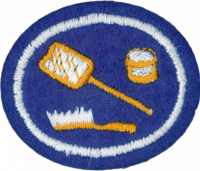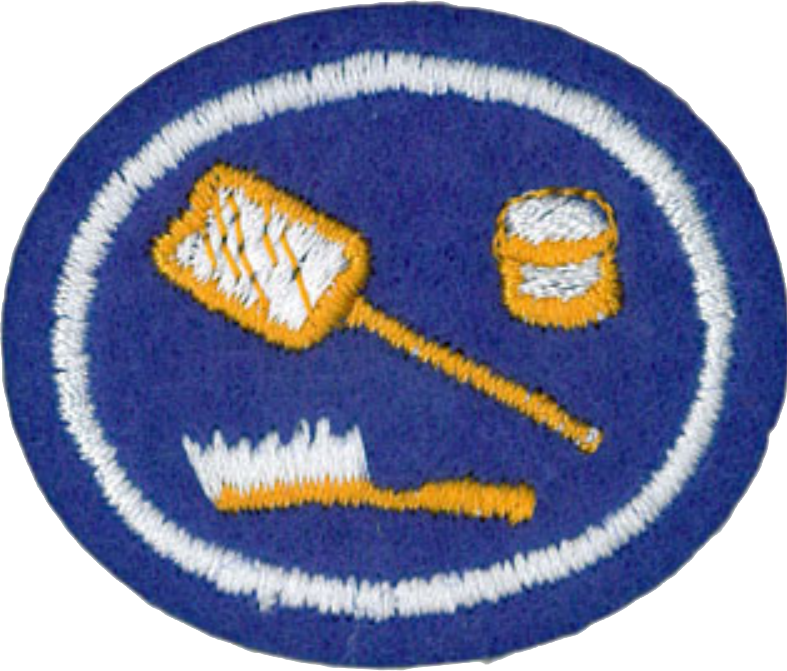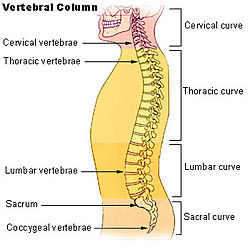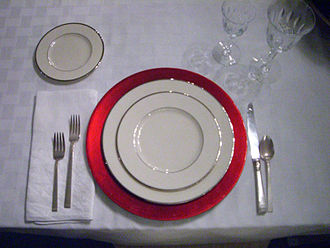AY Honor Christian Grooming & Manners Answer Key used by North American Division
Skill Level
2
Year
1975
Version
23.02.2026
Approval authority
North American Division
1
And Jesus increased in wisdom and stature, and in favor with God and men.
2
- 1 O LORD, our Lord,
- how majestic is your name in all the earth!
- You have set your glory
- above the heavens.
- 2 From the lips of children and infants
- you have ordained praise
- because of your enemies,
- to silence the foe and the avenger.
- 3 When I consider your heavens,
- the work of your fingers,
- the moon and the stars,
- which you have set in place,
- 4 what is man that you are mindful of him,
- the son of man that you care for him?
- 5 You made him a little lower than the heavenly beings
- and crowned him with glory and honor.
- 6 You made him ruler over the works of your hands;
- you put everything under his feet:
- 7 all flocks and herds,
- and the beasts of the field,
- 8 the birds of the air,
- and the fish of the sea,
- all that swim the paths of the seas.
- 9 O LORD, our Lord,
- how majestic is your name in all the earth!
This is saying that God sees man as the crowning (most significant) act of His creation. He made us a little lower than the angels in importance and gave us the charge to rule/manage the rest of His creation.
3
Importance
A person with poor hygiene is unpleasant to be around. Foul odors, dirty clothing, and gross things stuck between their teeth have a tendency to drive people away. Most people will not take a habitually unclean person seriously, and will instead do everything they can to avoid that person. It is very difficult to be an effective witness for your faith under these conditions.
Social cues
Be on the lookout for social cues that indicate you may have a problem. If someone is continually averting their eyes from you, or you find them staring at some part of your face other than your eyes, discretely excuse yourself and have a look in a mirror. Check your teeth, and make sure your face is clean.
If a person offers you a piece of gum or a breath mint, it may be a polite way of curing your bad breath. The proper response is "Thank you." Accept the breath freshener without asking why it was offered. Perhaps you'd rather not know!
4
Wet your hair thoroughly, being sure it is wet all the way to the scalp. Pour 15-30 ml![]() of shampoo into the palm of your hand, and then work it into the hair to form a lather. Lather the hair until all surfaces have been washed. Rinse thoroughly - if any shampoo is left in the hair, it will dry in place forming clumps of yellowish flakes.
of shampoo into the palm of your hand, and then work it into the hair to form a lather. Lather the hair until all surfaces have been washed. Rinse thoroughly - if any shampoo is left in the hair, it will dry in place forming clumps of yellowish flakes.
Comb or brush your hair immediately after washing it, and again several times through the day. Longer hair needs more frequent care. Very short hair may not need combing at all. When you are finished combing or brushing, run water over the comb or brush to clean it. Over time, a comb will collect a build-up of dirt which is difficult to rinse off. When this happens, run the teeth of the comb through the bristles of the brush. Rinse both.
Do not share a comb, brush, hat, or other headgear with another person, as this can facilitate the spread of lice.
5
Hands should be washed frequently throughout the day, especially after using the restroom. Germs are most commonly spread by hand-contact, and washing them is an effective way to prevent their spread. Be sure to use soap on the palms, fingers, the back of the hands, and under the fingernails, and rinse well. Many people avoid hand washing because it dries their hands, but this is really an effect of improper rinsing. If you find that hand washing still dries your skin even after thorough rinsing, apply a lotion. It is even more important to wash dried, cracked skin, as the cracks offer an entry for germs into your system. Drink plenty of water to keep your skin hydrated.
Fingernails should be trimmed neatly using nail clippers. Do not chew the fingernails or tear them off. Clean beneath the nails whenever you see dirt under them.
6
Facial Care
The most important aspect of facial care is regular and frequent cleansing. This can be accomplished with soap and water. Begin by wetting the hands and face with water, then lather the hands with soap and apply to the face. Work the soap over the surface of the face, rubbing it gently. Then rinse thoroughly. If desired, a lotion can be applied to the face to moisturize the skin, but little proof exists that this provides any health benefits at all. However, if the use of a moisturizer builds a person's confidence, it will do more good than harm.
Importance
Reasons why your face is important:
- It is the first thing that others see.
- It is the first thing that you see (when you look in the mirror).
- It is one of the main communicators of your emotions.
- Most people define "pretty" or "handsome" based on the way a person's face appears.
- People recognize you more by your face than by any other part of your body. Your face defines you.
7
People can adopt a facial expression as a voluntary action. However, because expressions are closely tied to emotion, they are more often involuntary. It can be nearly impossible to avoid expressions for certain emotions, even when it would be strongly desirable to do so; a person who is trying to avoid insult to an individual he or she finds highly unattractive might nevertheless show a brief expression of disgust before being able to resume a neutral expression. The close link between emotion and expression can also work in the other direction; it has been observed that voluntarily assuming an expression can actually cause the associated emotion.
8
Good posture does the following:
- Provides optimal balance.
- Optimizes breathing.
- Affects the circulation of bodily fluids.
- Reduces back pain.
- Protects the joints from strain.
- Expresses confidence.
- Is considered an integral part of physical attractiveness.
- Improves the body's ability to carry heavy loads.
- Protects against spinal deformity as a person ages.
Education, page 198, paragraph 3 reads as follows:
- "Among the first things to be aimed at should be a correct position, both in sitting and in standing. God made man upright, and He desires him to possess not only the physical but the mental and moral benefit, the grace and dignity and self-possession, the courage and self-reliance, which an erect bearing so greatly tends to promote. Let the teacher give instruction on this point by example and by precept. Show what a correct position is, and insist that it shall be maintained."
Sitting
The spine has four normal curvatures. From top to bottom they are the cervical, thoracic, lumbar, and sacral curves. The upper three of these should be aligned as shown in the image to the right when sitting. To get them into this position, do the following:
- Sit in a chair with your buttocks touching the back of the chair.
- Slouch forward (don't worry, we will correct this immediately!)
- Straighten up and accentuate the lumbar curve arching our shoulders back. Hold this position for a few seconds.
- Release and relax, drawing your abdomen back into a comfortable position, but with your shoulders still straight and back.
- Make sure your weight is distributed evenly on both hips.
- Keep your feet flat on the floor. Your knees should be level with your hips or a bit higher. If you cannot do this and keep your feet flat on the floor, adjust your chair (if it is adjustable) or use a smaller chair.
- Do not cross your legs.
If working at a computer, your forearm should extend directly in front of you and remain horizontal. The wrists should arch downwards towards the keyboard. You may need to use a wrist support to help you with this.
Source: http://www.globalspine.net/correct_sitting_technique.html
Standing
When standing, the spine should follow all four curvatures as in the image above. Observe the following points:
- Hold your head up with your chin in.
- Thrust the chest forward and the tummy tucked in.
- Keep your knees straight. But do not lock your knees. This restricts blood flow, and you could pass out.
- Make sure your pelvis is not tilted (neither forward nor back).
- If standing for a long period of time, rest one foot on a slightly elevated surface, such as a step. If working in the kitchen, you can open the cabinet door and rest your foot on the lower shelf.
- Do not stand in the same position for a long period of time. You should change positions every 5 to 15 minutes.
Source: http://www.globalspine.net/correct_standing_position.html
9
Exercise keeps your organs functioning properly, avoiding blockages and poor circulation. A healthy diet is also important for weight control. Excessive weight causes disease.
On average, the number of calories you consume should equal the number of calories you burn. Calories enter the body through the things we eat and drink - in other words, from the diet. Calories are burned by physical activity. The more physically active you are, the more calories you will burn.
If you consume more calories than you burn, you will gain weight. If you burn more calories than you consume, you will lose weight. If you caloric intake equals your caloric expenditure, you will maintain your current weight. This applies no matter what you weight is. There is no weight beyond which a person cannot get any heavier (unless the excess weight results in death, as it often does).
10
- But now, this is what the LORD says—
- he who created you, O Jacob,
- he who formed you, O Israel:
- "Fear not, for I have redeemed you;
- I have summoned you by name; you are mine.
- And the LORD said to Moses, "I will do the very thing you have asked, because I am pleased with you and I know you by name."
- For the sake of Jacob my servant,
- of Israel my chosen,
- I summon you by name
- and bestow on you a title of honor,
- though you do not acknowledge me.
Names are important enough to God that He has protected His own name in the Ten Commandments. He knows each of us by name which also signifies His personal interest us individually.
11
11a
11b
11c
11d
11e
11f
11g
11h
12
- Let the words of my mouth and the meditation of my heart
- Be acceptable in Your sight,
- O Lord, my strength and my Redeemer.
13
Table manners are the etiquette used when eating. This includes the appropriate use of utensils. Different cultures have different standards for table manners. Many table manners developed out of practicality. For example, it is generally impolite to put elbows on tables since doing so creates a risk of tipping over bowls and cups. Within different families or groups, there may be less rigorous enforcement of some traditional table manners of their culture while still maintaining others. For example, some families ignore elbows on the table or mixing of foods.
Table Layout
- Bread plates are to the left of the main plate, beverage glasses are to the right.
- Salad fork, knife and soup spoon are further from the main plate than the main course knife, fork and spoon. Dessert utensils are either placed above the main plate or served with dessert.
- The sharp edge of the knife blade faces the plate.
General Behavior
- Chew with your mouth closed.
- Do not talk at an excessively loud volume.
- Refrain from coughing, sneezing or blowing nose at the table.
- Never tilt back your chair while at the table, or at any other time.
- Do not make unbecoming noises while eating.
- Do not play with food or table utensils.
- Do not single out or chastise someone who has shown poor table manners.
- Do not put your elbows on the table or slouch. It is acceptable, however, to rest forearms, up to the elbow, on the table.
- Always ask the host or hostess to be excused before leaving the table.
- Do not stare at anyone while he or she is eating.
- Never talk on your phone at the table. If urgent, ask host or hostess to be excused, and go outside. Apologize after returning.
Utensils
- Do not eat food with your fingers unless you are eating foods customarily eaten with fingers, such as bread, French fries, chicken wings, pizza, etc. At more formal occasions, it is acceptable to eat asparagus or some romaine lettuce dishes with ones hands. However, as this is an obscure etiquette rule, in more casual settings, it is customary to use utensils.
- The fork may be used either in the American (use the fork in your left hand while cutting; switch to right hand to pick up and eat a piece) or the Continental (fork remains in the left hand) fashion -- either is now acceptable.
- The fork is used to convey any solid food to the mouth.
- The knife blade should be placed on the edge of your plate when not in use. The blade should always face inward.
- When you have finished eating soup, the spoon should be placed to the side of the saucer, not left in the bowl.
- Keep your napkin on your lap. At more formal occasions all diners will wait to place their napkins on their laps until the host or hostess places his or her napkin on his or her lap.
- When eating barbecue or some other messy foods, a 'bib' napkin may be provided for and used by adults. Usually these foods are also eaten by hand, and wet wipes or paper napkins should be used to clean the hands.
- When using paper napkins, never ball them up or allow stains to show.
- Use your silverware from the outside moving inward toward the main plate. (Salad fork, knife and soup spoon are further from the main plate than the main course knife, fork and spoon. Dessert utensils are either placed above the main plate or served with dessert.)
Dining
- A prayer or 'blessing' may be customary in some families, and the guests should join in even if they are not religious or do not follow the same religion. Most prayers are made by the host before the meal is eaten. Instead or in addition, a 'toast' may be offered.
- Do not start eating until (a) every person is served or (b) those who have not been served request that you begin without waiting. At more formal occasions all diners will wait to begin until the hostess or host lifts a fork or spoon.
- When a dish is presented 'family style', the food is served to one's plate and then passed on to the next person. Put the food on your left, take some and pass to the person next to you.
- When serving, serve from the left and pick up the dish from the right. Beverages are both served and removed from the right.
- Eat soup noiselessly and with the side of the spoon.
- Hot drinks should never be poured into the saucer to cool but should be sipped from the cup. Alternatively, ice may be used to cool them.
- Seasoning one's meal prior to tasting can be considered rude and may insult the chef.
At the end of the meal
- It is acceptable in most places to not finish all of the food on your plate.
- When finished with your meal, place your knife and fork with handles at the 4 o'clock position and the tines of the fork down to signal to the server you are done.
- Except in a public restaurant, do not ask to take some of your uneaten food away from the meal after it ends, and never when attending a formal dinner.
14
15
16
But when you are invited, go and sit down in the lowest place, so that when he who invited you comes he may say to you, ‘Friend, go up higher.’ Then you will have glory in the presence of those who sit at the table with you.




